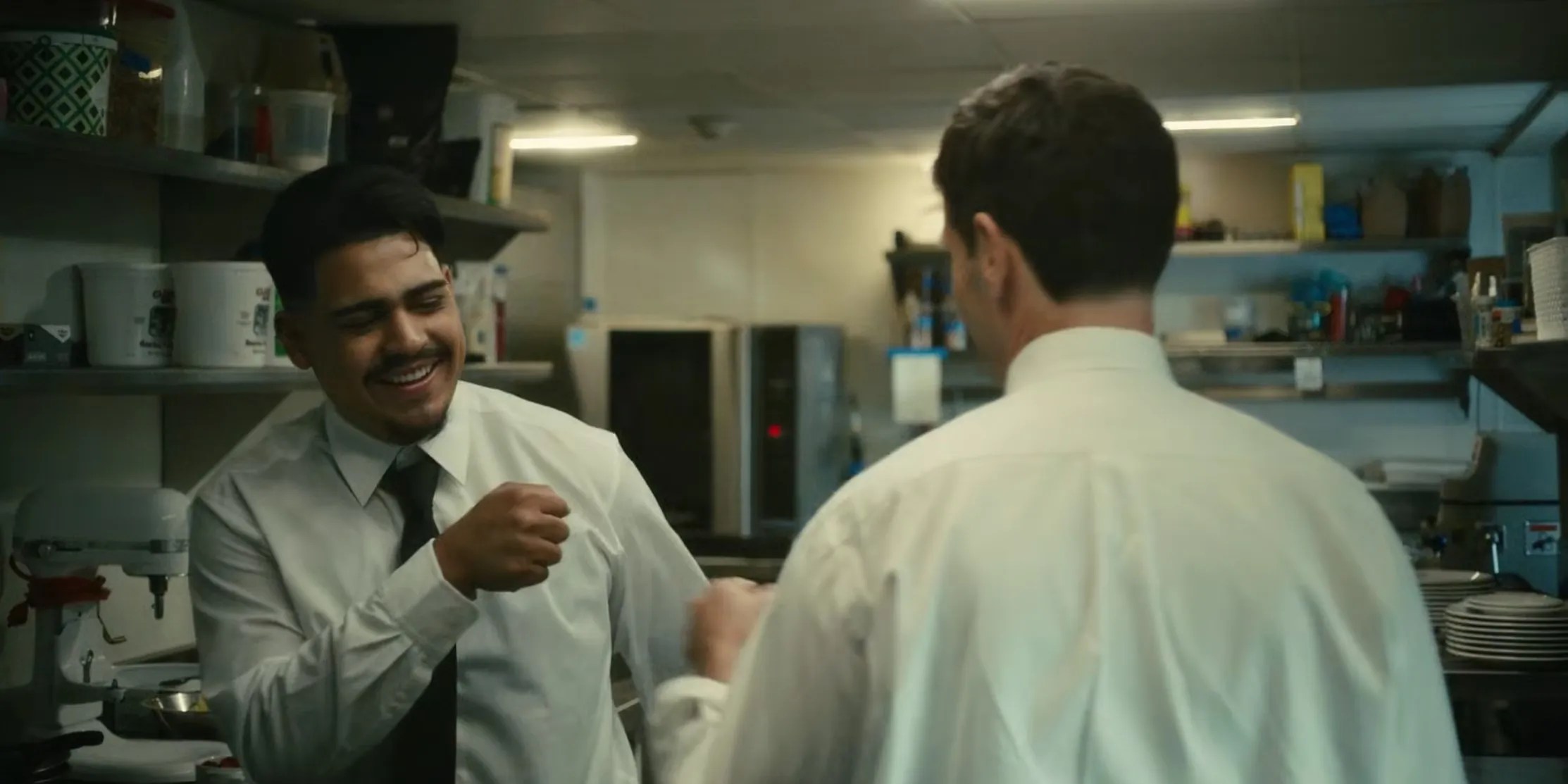The following article contains spoilers forAtlanta.
Atlanta’slatest episode is titled “The Big Payback”, yet another proper title for it might as well be “Oh boy, here we go again” because this one-off chapter takes a deep cut into a couple of the United States’ most heated debates: reparations and critical race theory. Of course, it does this in the mostAtlantaway possible, with clever writing that’s not bound to crack many laughs but still is worthy satire nonetheless.
Limiting the scope ofAtlantasimply to “comedy drama” is doing the show a great disservice as time after time it manages to portray social issues, race relations, and so many aspects of the black experience so precisely while at the same time being fantasticcomedytelevision. In this opportunity, writer Francesca Sloane makes her debut penning an episode that at times might resemble something Jordan Peele came up with, as it takes viewers for a ride in a very different America.

Related:10 TV Shows To Watch If You Love Atlanta
Just like the season premiere, “Three Slaps”, focuses on the young Loquareeous, this episode is seen from the eyes of Marshall Johnson, who is introduced in any coffee shop in Atlanta as he’s waiting in line to buy his coffee and inadvertently ends up taking a pack of madeleines he didn’t pay for. Marshall has his earphones on, but when it’s his turn it’s obvious the cashier had a small discussion with the young black man who was just ahead of him, thus it becomes clear this is going to be one of those kinds of episodes.

When he realizes he took the madeleines by mistake, something his fellow cafe-goer probably wouldn’t get away with, he moves on with his day until a sudden piece of news changes his life forever: A lawsuit from an African American plaintiff has led to a Mr. Mbaye being granted a massive reparations payout from an early investorin Elon Musk’s Tesla. Marshall seems unfazed even if somewhat intrigued by the report, though the broadcaster does remind him this will have big consequences in America.
Marshall is busy minding his own business, and viewers are meant to think there’s still some room for reconciliation with his wife and daughter’s mom, Natalie, but rest assured the reparations ruling is the only thing on everyone’s mind back at the office. The entire place seems quite tense, there’s a divide between the white and Black co-workers, and everyone is frantically looking to clear the names of their ancestors ever owning slaves, but not Marshall because he is a nice guy.

Critical race theory is another highly debated topic on the news these days, and the young Katie makes it obvious why when she confronts her dad witha pretty dense question “Are we racist?”, which leaves Marshall completely dumbfounded. Of course, they’re not, they don’t own slaves, all that was a really long time ago, although Hiro Murai’s camerawork makes sure the audience knows Marshall is starting to look at his fellow Americans just a tad different.
A Black woman named Shaniqua Johnson turns the tables on Marshall, as he’s served with court papers demanding a $3m reparation due to the actions of his great-great-grandfather. The moment is tense, and Shaniqua represents the empowerment a Black woman like her could have in such a legal scenario where the system finally favors her cause so heavily; for a moment, they’re both Karens and Marshall’s threat to call the police sure doesn’t help.
Ta-Nehisi Coates’ work inBlack PantherandCaptain America,plusSupermanin the future, comics now means one of the authors behind a seminal piece of writing (“The Case for Reparations”) arguing in favor of reparations has influence over pop culture. This is not an isolated case, asHBO’sWatchmenalso touches upon the matter, however, Coates was wise to address the way reparations are paid out as a crucial point in the entire issue andAtlanta’spremise inthe lawsuit-happy United Statesis a good example of why this route wasn’t at the top of his list.
Work is tense, and anyone whose past is clear celebrates, while a bathroom scene treats viewers to the episode’s most inverseGet Outmoment, as one of Marshall’s coworkers settled for wearing an “I owned slaves” t-shirt to make amends for his ancestors’ actions. However, perhaps the episode’s best moment comes when Marshall talks to one of his Black co-workers, because Lester’s friendly advice of “say you were wrong and give her as much money as you can” is swiftly cut short with a new scene of Marshall seeking counsel from his white colleagues.
While Shaniqua fights on as loudly and proudly as she can, it’s clear Marshall is slowly processing this new reality by going through all stages of grief. His fair-skinned wife of Peruvian descent ultimately asks for the finalization of their divorce and reminds viewers how thin and different the lines that divide race are in other parts of the world, but nothing highlights how out of touch Marshall is like his conversation with Lester being interrupted so abruptly.
The only runner-up is Earnest, a white man he meets in his safehouse hotel once his life has completely crumbled, who seems to possess the best nuance to tackle their new misfortunes, not that it helps him out too much either. Marshall’s fate leaves him waiting tables for Black customers who have possibly just come across new wealth, he makes small talk with his new Latino co-workers and is finally the representation of pure acceptance.
This imagined dystopia for whiteness is a stark contrast to last week’shilarious “Atlantain Europe” episode, nevertheless, its power lies in showcasing the series’ continued efforts to venture into subjects few others are willing to explore.Earn, Al, Van and Darius are a blast, but sometimes a blast from reality is just as good.